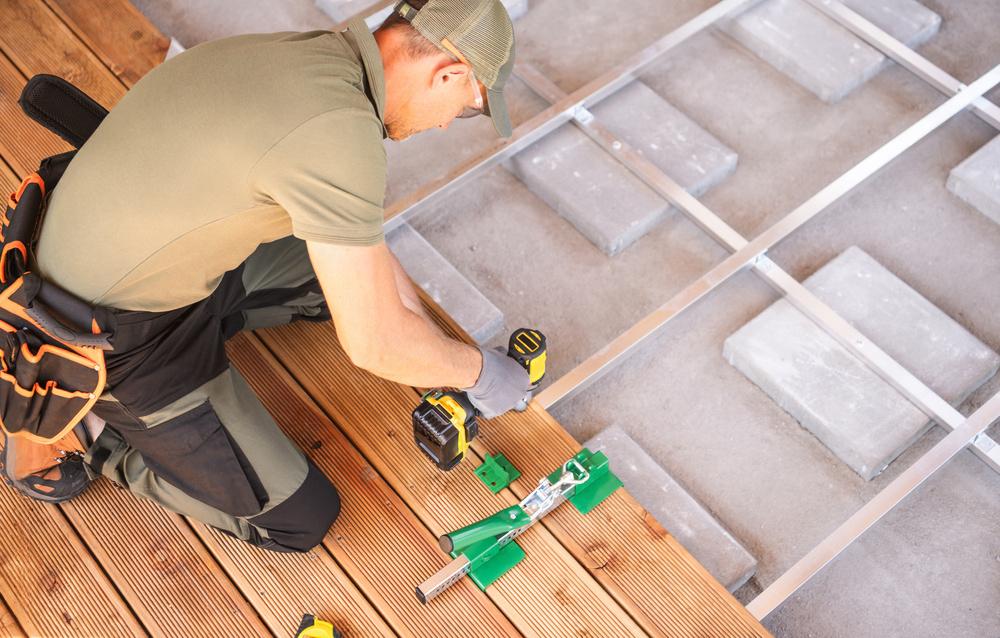
Understanding Flooring Installation in Phoenix, AZ
Choosing the right flooring for your home in Phoenix, AZ requires careful consideration of the local climate, durability, and aesthetic appeal. Given the intense heat, occasional monsoons, and dust storms, homeowners must select flooring that withstands these conditions while enhancing indoor comfort and style.
Key Takeaways:
- Tile and LVP are top choices for Phoenix homes due to their heat resistance, durability, and low maintenance needs.
- Engineered hardwood is a great alternative to solid wood, offering climate adaptability.
- Stained concrete provides a modern, low-maintenance solution, especially for contemporary homes.
- Flooring costs vary depending on materials, with tile and engineered hardwood on the higher end.
- Hiring experienced professionals ensures proper installation, long-term durability, and adherence to building codes.
Best Flooring Options for Phoenix Homes
Tile Flooring: A Durable and Cool Option
Tile flooring, particularly ceramic and porcelain, remains one of the most popular choices in Phoenix due to its durability and heat resistance. It stays cool underfoot, making it ideal for high temperatures. Additionally, tiles are resistant to moisture, dust, and allergens, making them a low-maintenance solution for desert living.
Luxury Vinyl Plank (LVP): Style and Resilience Combined
Luxury Vinyl Plank (LVP) flooring is gaining popularity due to its water-resistant properties and ability to mimic natural wood. This option provides a softer underfoot feel compared to tile while offering excellent durability against scratches and dents. It is a practical alternative for homes with pets and children.
Engineered Hardwood: Classic Beauty with Climate Adaptability
Traditional hardwood is not always ideal in Phoenix due to humidity fluctuations, but engineered hardwood offers the same aesthetic appeal with better resistance to temperature changes. The layered construction prevents warping, making it a more stable option in Arizona’s dry climate.
Stained Concrete: A Modern, Low-Maintenance Alternative
For homeowners seeking a contemporary look with minimal upkeep, stained concrete flooring provides a sleek and durable solution. It resists heat, moisture, and heavy foot traffic, making it a practical option for both residential and commercial spaces.
Carpet: Comfort with Proper Considerations
While carpet may not be as heat-resistant as hard surface flooring, it provides comfort and noise reduction. Choosing low-pile, moisture-resistant carpets with advanced stain protection can make this flooring type suitable for bedrooms and living areas in Phoenix homes.
Factors to Consider When Choosing Flooring
Heat Resistance
With summer temperatures often exceeding 100°F, selecting flooring materials that do not retain heat excessively is crucial. Tile, concrete, and LVP are excellent choices due to their ability to remain cooler underfoot.
Moisture and Dust Resistance
Monsoon season can bring unexpected humidity, making water-resistant options like tile, LVP, and engineered hardwood essential. Proper sealing and regular maintenance further enhance moisture protection.
Maintenance and Longevity
Each flooring type has different maintenance needs. Tile and stained concrete require minimal upkeep, while carpet demands frequent cleaning to manage dust accumulation. LVP offers easy cleaning and durability, making it a hassle-free option for busy households.
Cost of Flooring Installation in Phoenix, AZ
Flooring Installation in Phoenix AZ costs vary depending on the material, labor, and preparation requirements. Here’s an estimated cost range:
- Tile Flooring: $6 – $15 per sq. ft.
- LVP Flooring: $5 – $12 per sq. ft.
- Engineered Hardwood: $8 – $20 per sq. ft.
- Stained Concrete: $3 – $10 per sq. ft.
- Carpet: $3 – $8 per sq. ft.
Additional expenses such as subfloor preparation, removal of existing flooring, and custom finishes may impact the overall budget.
Finding a Reliable Flooring Installer in Phoenix
Selecting the right flooring contractor ensures a smooth installation process. When evaluating professionals, consider:
- Verified reviews and testimonials
- Licensing and insurance
- Experience with Phoenix’s climate conditions
- Warranties and service guarantees
- Transparent pricing and detailed estimates
Eco-Friendly Flooring Options for Sustainable Homes
Homeowners in Phoenix seeking sustainable flooring options can consider bamboo, cork, and reclaimed wood. These materials offer durability while minimizing environmental impact. Bamboo grows rapidly, cork is naturally resistant to moisture and pests, and reclaimed wood repurposes old materials into stunning flooring solutions.
Best Flooring Choices for High-Traffic Areas
Areas like hallways, kitchens, and living rooms require flooring that withstands heavy foot traffic. Tile, LVP, and stained concrete excel in these spaces due to their resilience and ease of maintenance. Choosing high-quality finishes and proper sealing further enhances durability and longevity.
Seasonal Maintenance Tips for Phoenix Flooring
Phoenix’s climate demands seasonal care to maintain flooring longevity. Regular sweeping reduces dust buildup, while periodic sealing prevents moisture damage. Using area rugs in high-exposure zones can protect surfaces from fading due to prolonged sun exposure. Proper ventilation also minimizes humidity-related flooring issues.
Choosing the best flooring for your Phoenix home involves balancing durability, style, and climate adaptability. Tile, LVP, engineered hardwood, stained concrete, and carpet each offer unique advantages. By selecting a reliable contractor and understanding the installation process, homeowners can enjoy a long-lasting and visually appealing flooring solution tailored to Arizona’s unique environment.
What is the most durable flooring option for Phoenix homes?
Tile and LVP are among the most durable choices for Phoenix homeowners. Tile resists heat and moisture, making it ideal for high temperatures, while LVP offers resilience against scratches, stains, and wear, ensuring long-term performance even in high-traffic areas.
How does Phoenix’s climate affect flooring choices?
Phoenix’s hot and dry climate makes heat resistance a key factor in flooring selection. Materials like tile, stained concrete, and LVP remain cool underfoot, while engineered hardwood provides stability against temperature fluctuations, reducing the risk of warping or cracking over time.
How much does it cost to install flooring in Phoenix?
The cost of flooring installation in Phoenix varies by material. Tile and engineered hardwood range from $6 to $20 per square foot, while LVP and carpet are more affordable options. Additional expenses, such as subfloor preparation, may impact the overall budget.